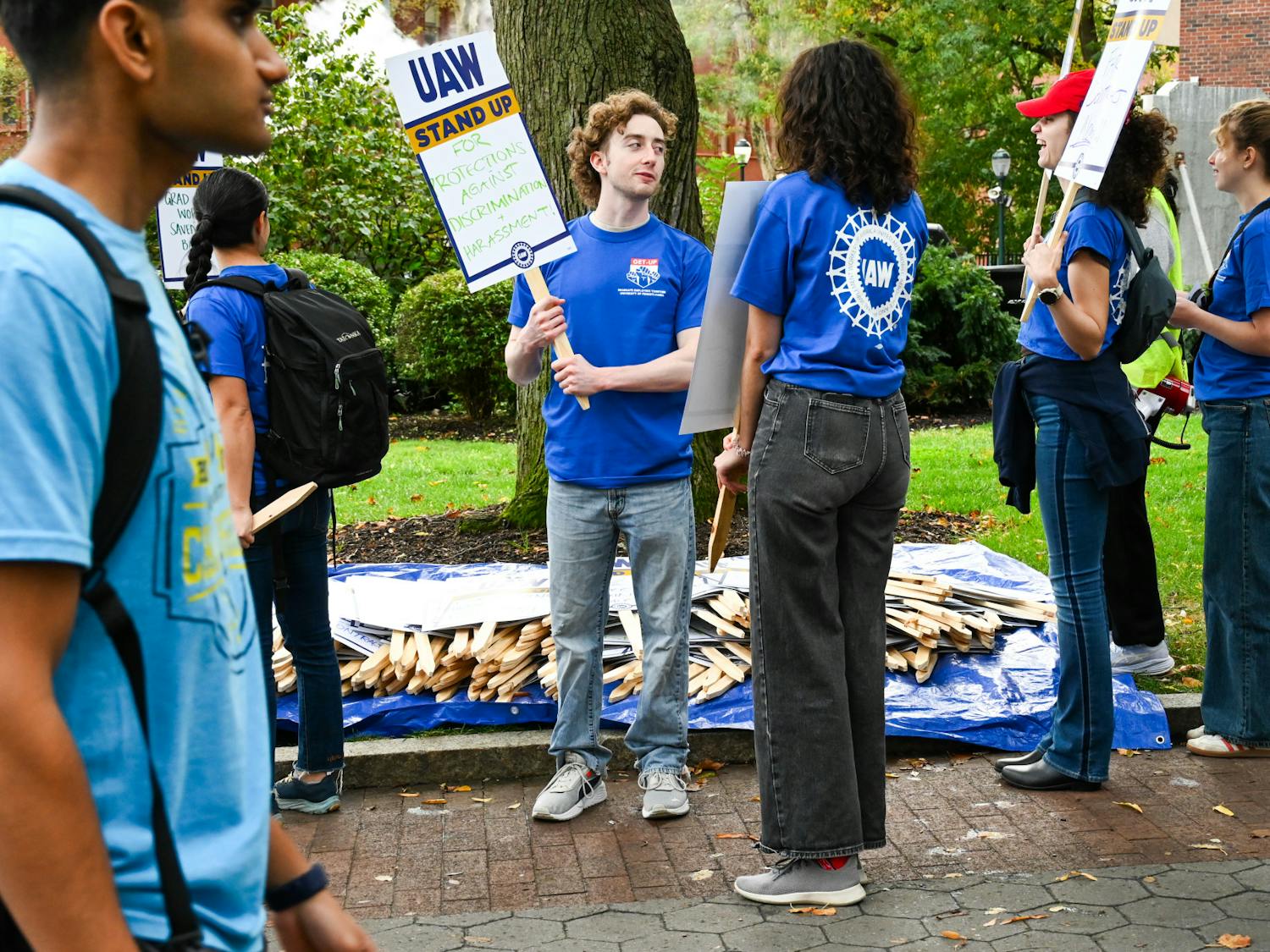College senior Kojo Minta is struggling to figure out whether to enter academia or the nonprofit sector after graduation. A history major studying 17th-century Puritanism, he finds it hard to reconcile historical interests with concerns about current issues, like poverty and political turmoil.
"How can studying something that's so abstract really contribute to anything that's important today?" said Minta, a former Daily Pennsylvanian reporter.
In the family of academic disciplines, the humanities are sometimes viewed as the brooding, egocentric youngest child with no clear future. Now, in light of the economic crisis, the value of the humanities has come under particularly harsh judgment.
But many at Penn argue that a traditional liberal-arts education is no less meaningful than a practical primer for specific career path because humanities equip students with important transferable skills -- like critical thinking and ethical reasoning - for any economic climate.
Though seeing the "concrete value" of the humanities is difficult, Minta said, they are still useful and important. "People who study classics, English or history go into consulting, go into finance because they do have certain evaluative and writing skills," he said.
Questioning merits
Public debates and media discourse are frequently questioning the necessity - and more importantly, the practicality - of disciplines such as English, philosophy, history and religion. Critics say they focus on thinking rather than doing and do not prepare students for the future.
For example, public scholar and New York Times blogger Stanley Fish - who is speaking at Penn this Thursday - has claimed the humanities "have no instrumental value."
However, College Dean Dennis DeTurck said, although some people find the humanities impratical, most understand their importance.
"Some people, when there is a downturn like this, believe all education should be aimed at what is 'practical'," he said. "[But] most people understand the value of things that are fundamental."
He and several other professors find that, debates over practicality aside, the purpose of the humanities is to understand human nature.
For Classical Studies chairman Joseph Farrell, that means "what distinguishes human beings from other forms of life."
Last Monday, the Philomathean Society - of which Minta is Second Censor - hosted Farrell, Music professor Gary Tomlinson and English professor and Penn Humanities Forum director Wendy Steiner for a panel discussion on the status of the humanities. They talked about the nature of the humanities, differences between the humanities and the sciences and common misconceptions about the discipline.
One such misconception, according to Farrell, is that there is nothing that humanists can learn that scientists cannot, but not vice versa.
Scientists can say, "Those of you in the English department, you read Shakespeare - I can read Shakespeare too. So, you don't contribute anything, do you?" Farrell joked. "But there's a difference between reading and really reading."
Another point was that the media tends to put down the academy, particularly through the humanities. "They say it's too much knowledge, too finicky, too insensitive," Steiner said.
Consequently, Tomlinson added, students think the humanities delve too deeply, such that analysis detracts from an artistic work or a philosophical thought.
Skills for all seasons
History Department undergraduate advisor Susan Miller said the major is "very practical," especially in tough economic times. "What the major teaches, among other things, is clarity of thinking, analytic skills, great writing skills and an ability to read, process and synthesize a lot of information," she said.
She added that some students have told her how their academic experience was useful beyond the classroom, such as at law firms, medical school and the Peace Corps.
DeTurck added that at a recent meeting of the School of Arts and Science board of overseers, Career Services director Pat Rose said humanities students are actually in demand - and may have an advantage.
"Students in the arts and sciences [in general] are not training for a specific job, so when that job disappears, you're not at such a disadvantage," she explained.
SAS Dean Rebecca Bushnell agreed "Humanities students have the advantage of having broad training in many skills that will be in demand in the job market," she wrote in an e-mail.
Making 'life worth living'
College freshman Jessica Kim said she decided on an English major in preparation for law school because, at the core, she simply loves the subject. "English requires a lot of analysis and close attention to detail and readings," she said. "You also come to read people in a way because you have to do so much characterization. And it's still logical."
Students like Kim are the reason that the humanities are still important - perhaps now more than ever.
"I don't really fear for our survival because students just love to take humanities courses," Farrell said.
Engineering sophomore Greg Fu acknowledged negative stereotypes about the humanities, such as absence of rigor, but does not think one discipline is intrinsically more challenging or valuable than another.
"While we as engineers are sitting around in the lab or in front of a computer trying to obtain data or background information, the humanists are doing the same thing, just in the library or in books," he said.
DeTurck added that "at the end of the day, while things like science and technology make life better, art, literature and culture make life worth living."








